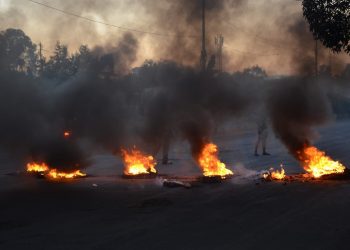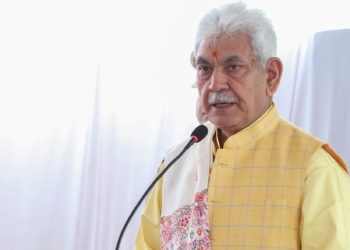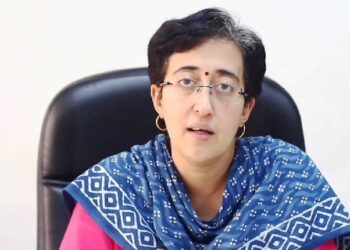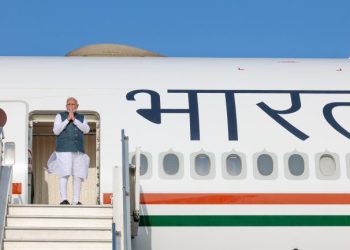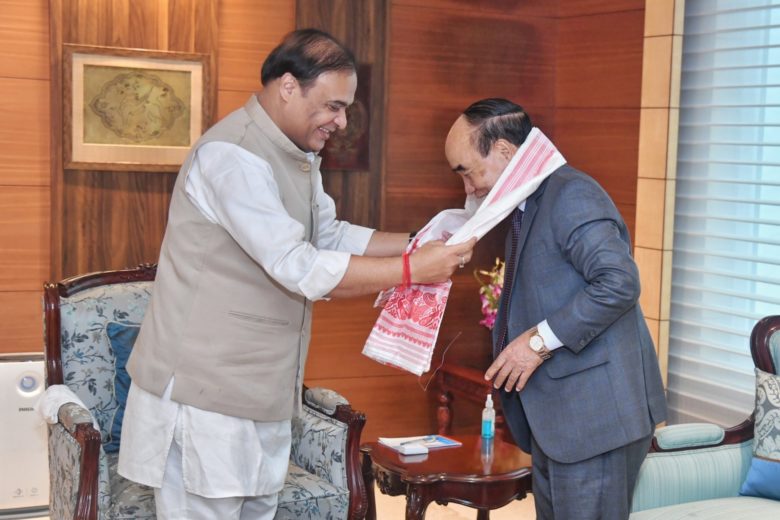Imphal: Since ancient times, women played a significant role in Manipur, wielding swords and defending their villages when men were away fighting battles in faraway places.
Besides various other social evils, the women in Manipur have been fighting against alcoholism since the 1970s, forcing then Manipur People’s Party-led government headed by Chief Minister R.K. Ranbir Singh to pass the Manipur Liquor Prohibition Act in 1991.
The law is still in place.
Since 1991, Manipur officially became a dry state with exemption to people belonging to Scheduled Caste and Scheduled Tribe communities to brew liquor for traditional purposes only.
However, despite the prohibition, liquor consumption could not be successfully controlled and alcohol remained widely available, leading to agitations in different parts of the state against liquor related menaces.
In this backdrop, the Manipur government headed by Chief Minister N. Biren Singh has of late decided to partially lift the prohibition as the government is expecting to earn a revenue of Rs 600 crore annually.
However, as per the fresh government decision, the sale of liquor would be confined to district headquarters, some other identified locations, tourist spots and resorts, security camps and hotels having at least 20-bed lodging facility.
Tribal Affairs and Hills Development Minister Letpao Haokip, who is also the government spokesperson, said that considering boosting revenue generation in view of the government’s financial crunch, “we expect to earn a revenue of over Rs 600 crore per year”.
There have been incidents when spurious country liquor has caused deaths. This is one of the reasons the state government cites in favour of lifting the prohibition.
“People are dying in Manipur since spurious and harmful ingredients are often mixed with country liquor. If proper and official licence is issued, there can be quality control,” a state excise department official told IANS, refusing to be named.
The official said that thousands of India Made Foreign Liquor (IMFL) bottles are smuggled in from neighbouring Assam and Myanmar, leading to their easy availability in Manipur, though at a high price.
Although the law enforcement agencies occasionally destroy IMFL bottles and pouches of country liquor, but illegal trade of alcohol is still going on in the northeastern state, the official said.
The latest government decision has been vehemently opposed by many organisations and individuals, including Coalition Against Drugs and Alcohol (CADA), and they are threatening to launch an agitation demanding immediate rollback of the decision.
The Manipur government had recently sent a ministerial committee to Goa to study scientific liquor brewing for export.
Amid rising domestic crimes and crimes against women, drunken men torturing their wives and other women family members is a common phenomenon in Manipur.
To curb crimes against women, female citizens had formed the All Manipur Women’s Social Reformation and Development Samaj or Nupi Samaj in the late 1970s.
The ‘Meira Paibis’ (women torchbearers) conducted patrolling in villages at night and detained drunkards and bootleggers and even gave them punishments.
The punishments were innovative with the accused being asked to do frog-march wearing garlands of empty bottles, while shouting out, “I am a drunkard, I am a bootlegger.”
Militant outfits in Manipur have observed that the authorities use drugs and alcohol as a counter-insurgency strategy on the theory that if the youth are engaged in intoxicants, they will not think about “armed revolution for independence”.
The women activists reiterated that they would never accept the government’s fresh decision since it would harm the future generations.
The CADA leaders anticipated that if the government implements its latest decision, it would push the death knell into a large section of the population, especially the younger generations.
An elderly CADA member said, “During the past around five decades, women and concerned citizens have been fighting against drug and alcohol abuse and its resultant effects in the state. It helped put a curb on alcohol trade. Now the state government is keen to partially lift the prohibition just for the sake of revenue, forgetting the future of the people.”
Senior Congress leaders, mostly women MLAs, are critical of the BJP government’s proposed policy.
“The government is cash-strapped and unable to pay salaries on time in most of the months. So it is taking the easiest way out of the crisis,” Congress leader Raj Kumar Samarjit Singh said.
Since the British rule, women in the erstwhile princely state have been playing a prominent role in the society. From economic activities to mass agitations, domestic affairs to sports and cultural activities, societal awareness to fight against drugs menace and militancy, women have been in a dominating role.
However, in the male-dominated society, they (women) have an insignificant chance to become a lawmaker or a minister or at least be in a commanding administrative position.
The world’s largest and century old all-women run market ‘Ima Keithal’ or the ‘Mother’s Market’, located in Imphal, and other smaller all-women markets functioning in different parts of the northeastern state boost economic activities to a large extent.
The ‘Ima Keithal’, which has a history of over 500 years, has around 3,615 licensed women vendors registered with the Imphal Municipal Corporation.
(IANS)



